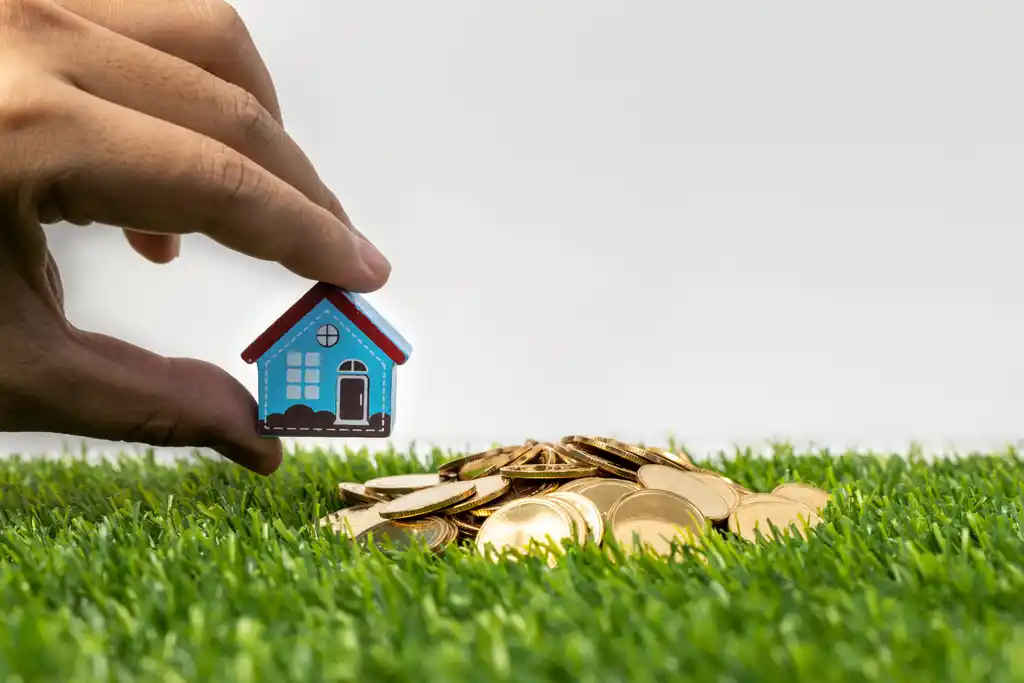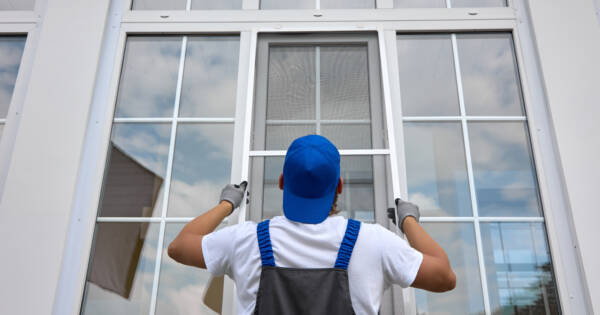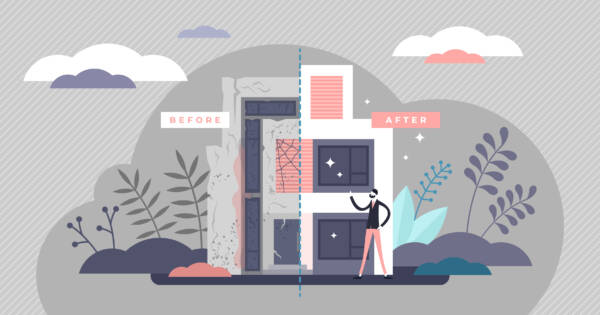While most of us are necessarily familiar with our income taxes (if only because we’re hoping for a refund), not too many people excitedly follow their property tax value. That’s kind of a shame, because the National Taxpayers Union estimates that 60 percent of homes are overvalued for property tax purposes, while only 2 percent of homeowners appeal their property taxes [source: Leamy].
So how do we fight for lower taxes? First off, understand that you’re not going to be able to lower your tax rate — that’s set by your local jurisdiction, and nobody can shave off a few percentage points from that sucker. What you can do, however, is lower the assessment of your property, which is what gets taxed. So let’s start off with a little property tax primer that will help us understand how we can get a fair value for our home and land to understand how to get the biggest tax refund possible for your property.
10. Learn What Property Taxes Are
So before we figure out how to lower property taxes, it’s probably best that we discuss what exactly property taxes are. First off, don’t let the name fool you: These puppies are not something you’re paying on your tax return every year. Instead, you’re going to pay them as a part of your mortgage payment. Every month, a bit of your mortgage goes into an escrow account: From there, the lender or mortgage server pays your property taxes when they’re due [source: Home Learning Center].
So this might sound fine and good, but it also leaves something to be desired. Namely, you can’t make special deductions or take great write-offs on your property taxes. They are what they are, and you pretty much have to pay them. Since there’s no single formula used by local governments to assess your property value, that means you’re at the mercy of your local jurisdiction — or even your assessor [source: Boone]. So what to do to get that assessment lower? First up: Know what you’re already paying.
9. Get Your Hands on Your Property Card
While there is no one formula for determining the value of your property, that doesn’t mean that your assessment is written in invisible ink and hidden in troll caves. You can absolutely see your assessment. It’s called your property card, and it has lots of cool information on it. Besides having the obvious stuff (how many bedrooms your house has, what kind of outbuildings are on the property), your card could also have historical information about it, such as when each assessment was conducted [source: Curtis].
Obviously, you’re going to want to make sure that assessment is correct. Mistakes happen, and you don’t want to be paying property taxes on an extra bedroom that was added by accident. Bonus: When you’re at the office, you can even ask your friendly neighborhood assessor how he or she values property. It might give you some insight into how the process works in your municipality. But more on that later. First, let’s talk about things that add a lot of value to your property.
8. Beware of Building
Here’s the plan: To make your house a dream home, you’re going to add a water slide from the master bath to an indoor pool that doubles as a moat around your house. You’ll build a fancy art studio for the stained glass hobby you always wanted. And don’t forget a shed. You just really need a shed for that stupid lawnmower.
While it all sounds great, you should know that any permanent, built fixture on your property is not going to help you lower your property tax bill. That doesn’t necessarily mean you should ditch the moat, but it certainly does imply that you might want to know what you’re dealing with tax-wise before you start digging the perimeter. You can also call some local building or tax offices to get an idea of what you might be paying if you do build [source: Curtis].
7. In Fact, Don’t Try Too Hard to Make It Look Good
Assessors are people too, and you know what people like? Really nice-looking, fancy-schmancy houses that look meticulously perfect. Some assessments are even done on a drive-by basis; creating the opportunity for some (quite necessarily) subjective reporting [source: Block]. The prettier your house looks, the more you might end up paying in property taxes. It’s the drawback of your house appearing a heck of a lot more appealing than the unmowed, half-painted one next door.
This leads to an important point about assessments: Your house is being compared to others — to your neighbors’ houses, of course, and also to other homes in the area. If you know an assessor is coming by, it might not actually be the best time to pull out all the stops to make the house stand out from the crowd. Save it for the real estate showing.
6. Check the Deadline for Challenging
Not that you’re looking for a fight, but it never hurts to be ready to challenge your property tax. Assessments might not be done every year on your property, but do try to determine when yours is taking place. (They might send out a notice letting you know that assessments will be happening, but you can also check with your assessor’s office to see when your neighborhood is scheduled.)
It’s not necessarily that it’s that important for you to be on the front porch waving when the assessor comes by. Instead, knowing when an assessment occurs will make it a lot easier to catch errors — or lodge petitions — early on. Remember that you’re paying property taxes every year; miss an error from two years prior, and you’ve already paid the taxes. Also, keep in mind that if there is a change in your assessment, the office will probably notify you — but that means you need to actually open the mail and not throw it into the recycling bin.
5. Nose Around the Neighbors if You Suspect an Error
As we said before, it’s extremely important that you understand what’s on your property card at the assessor’s office. It’ll save you a lot of time challenging mistakes (or even judgment calls) if you can catch them right away. But here’s a secret that folks who work at the assessor’s office can tell you: A lot of people come in not to look at their own property card, but to check out their neighbors’.
And that’s not just because they’re nosy busybodies. Knowing how the houses around you are assessed can be quite valuable to understanding your own assessment. If you do suspect that an error was made on your assessment, it’s a good idea to check houses in your hood. Do you and your neighbor have a similar property assessment, even if your neighbor’s house has a huge garage and swimming pool? There might be a reason your house is valued equally, or there could be a problem with the assessment.
4. Make Friends With the Assessor
So far, we’ve made it sound like the assessors are shadowy figures bent on trying to wring the highest amount of taxes they can out of a property. The truth is a lot less interesting: It’s absolutely in their best interest to get your assessment right. Think about it like this: Assessing property values too high doesn’t do anybody a lot of good. It obviously overvalues the market, and — this is a big one — it doesn’t help the assessors to have loads of property owners filing appeals.
Here’s a thought: Remember that you can access loads of information about how assessments work from municipal websites, or you might even consider asking the assessor’s office yourself in an informal meeting. If an assessor has questions about your property, you’ll likely be contacted: Take advantage of the interaction by carefully explaining any discrepancies that have been noted. A lot of assessments are done without actually entering the property, but if the assessor does request a walk-through, be there to explain any improvements or deficiencies.
3. Get an Outside Appraiser
So, the jury’s in: You’ve checked the neighbors, you’ve asked the assessor — and you still think your property is being valued too high. If it’s not an easy mistake that can simply be rectified by another visit from the assessor’s office, it leaves you in tricky territory. While assessors are given rigid rules and regulations to determine property value, there’s certainly still more room for judgment. And now you’re in the uncomfortable position of challenging not a fact, but a professional opinion.
One solution? Counter with another professional opinion. While some jurisdictions won’t let you hire an outside appraiser to bolster your appeal, you should consider it if yours does. Another certified professional (a member of either the National Association of Independent Fee Appraisers or the American Society of Appraisers) might go a long way in convincing the right people that your house was overvalued [source: Clarke].
2. Look at Real Estate Websites
While no one can argue that snooping through neighbors’ property tax records isn’t a load of fun, you might want to start out a little less “covert operation” and a little more “free time and decent WiFi connection.” Lucky for you, there’s a pretty easy way to build a case for appealing your property assessment: Go on some real estate websites and see what’s been sold in your neighborhood lately.
Don’t necessarily look at the listings. Instead, find the homes’ actual selling prices. But a word of caution: Remember that the assessed value of your home isn’t always going to be the fair-market value. While some assessments are based on home sales, others might be based on the cost to replace your home, plus the value of the land it’s on [source: Block]. Do keep in mind that even if your home is the one dump among huge, expensive houses in the neighborhood, your home is going to have some value based on the places around it. Better, perhaps, to be the sprawling mansion among dumps.
1. Forget About Challenging Your Assessment
We’re not telling you to just give up if you think your assessment is wrong. If anything, it helps you, the assessor’s office and even the community to correct an overvaluation. But you should know that once you start an appeal with the assessor’s office, you might be dismayed to learn that your house is going to be in the spotlight.
No, that doesn’t mean that evil assessors will be prank-calling your landline. But it does mean that if you have any zoning or compliance issues with your property, they’ll be brought to light. “Fine,” you think, “my house is just a normal home. What could be noncompliant about it?” What indeed.
Consider that bathroom remodel that you hired your brother-in-law to do. Did he get permits? Even worse, do you know whether the previous owners of your house got permits when they redid the kitchen you fell in love with? Also, did you know the top stair to your front stoop is a half-inch taller than code?
All these things may suddenly become issues you have to address right away, should you choose to appeal your assessment [source: Pulawski]. Just be sure you know what you’re getting into, should you lobby an appeal.
Author’s Note: 10 Tips to Lower Property Taxes
It really pays to check out the website of your assessor’s office. Not only will you be able to find some useful information about how assessments work in your area, the site will probably give you some idea about when assessments take place and how to appeal, should you take issue with the valuation.
 Shutterstock
Shutterstock







